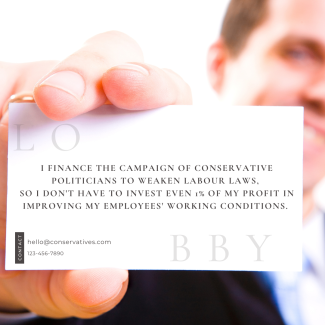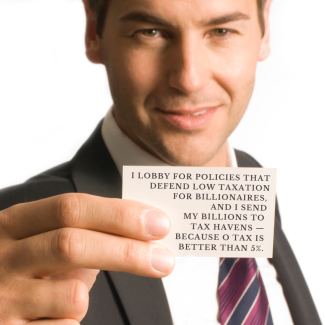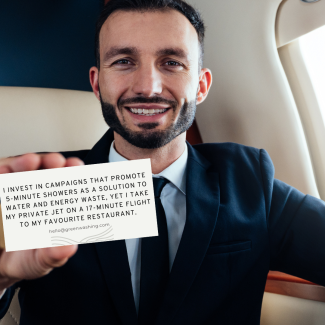Another Conference of Parties of the United Nations Framework Convention on Climate Change (more commonly known as the COP) is around the corner, from November 30th until December 12th December in Dubai!
Yes, we know what many of you might think: “Yet ANOTHER unsurprisingly useless, expensive, energy-consuming summit that will amount to nothing more than grand rhetorics and empty promises…”.
However, we expect COP28 to be a particularly unhinged political farce.
In the midst of a worsening climate crisis which has seen the hottest summer in human history (and the coolest one for the rest of our lives) with the UN secretary general announcing we literally entered the “era of global boiling”, which disproportionately affects women, girls and gender-diverse people, racialized people, indigenous and rural communities, and people with disabilities, especially from the Global South, you would think that state representatives would take the matter seriously.
WRONG! 🚨
Guess who is presiding over COP28 this year to discuss solutions to the climate crisis? Sultan Al Jaber, the head of an OIL FIRM. 👀
Just a reminder that fossil fuels are by far the LARGEST CONTRIBUTORS to the climate crisis, with over 75% of greenhouse gas emissions and almost 90% of ALL carbon dioxide emissions.
And this same industry is leading the climate summit to find SOLUTIONS? 😂
It sounds like a joke, but really it’s nothing else than what ESCR-NET described as corporate capture, or the “means by which an economic elite undermines the realization of human rights and the environment by exerting undue influence over domestic and international decision-makers and public institutions”. Typically, this is when corporations use their leverage to influence policy-making to make more money, while continuing to destroy the planet and exploit people, especially historically and currently marginalized communities from the Global South.
Against the backdrop of the increasing corporate influence in all spheres of our lives and climate doomism, we decided this year to turn to humor to illustrate the issue of corporate capture, and hopefully provide you with some comic relief.
We asked a few feminist humorists about their opinion on corporate capture, and this is what they told us.
For Dea Safira, corporate capture is nothing new, and it’s not just happening at COP. For instance, take a look at this throwback to the farce of the G20 summit that happened in Indonesia in 2022 and the hypocrisy of corporate and governmental elites when they say they are interested in sustainability but, in reality, will do nothing to course correct the world-wide social and environmental plunders they have created.
How do these corporations even get access to international policy-making spaces without any democratic mandate? Through tactics such as economic diplomacy, lobbying, manipulation, judicial interference, policy-makers having vested interested in the corporations they are backing, we are seeing the consolidation of “multistakeholderism” (a more “inclusive” model of governance where corporations are being given a seat at the table to come up with solutions to the problems THEY themselves created, only to create more problems and make more money out of it). What a nice way to package what is essentially a massive conflict of interest!
This is what Justine Wanda calls getting an All Access Pass by making friends the corporate way, aka how politicians can make strong corporate allies who will never critique them, so both state and corporate actors can maintain a hold on global policy and profit from it.
But how do corporations manage to get away with all of this??? Money. For example, the fossil fuel industry has spent billions of dollars on campaigns of misinformation to mislead the public about the industry’s impact on the environment and its responsibilities for the climate crisis, when they’ve known about it all along! Follow Achieng Osanjo as she gives us a special workplace onboarding at Profit Co, to see the various ways corporations shape narratives in their favor, including internal work culture so corporate staff feel comfortable enough to not challenge the company’s questionable practices. From utilizing their own researchers and lawyers, to marketing campaigns, corporations have a range of tactics to lie and intimidate and ultimately get their way.
This includes greenwashing (deceptively presenting actions and policies as environmentally sustainable), which we'll see a lot of during COP28, and the promotion of what activists have called false solutions like “green” finance, “green” mining, green “growth”. These are not just oxymorons, they are initiatives that pretend to solve the climate crisis, while making it worse and enriching the corporations promoting them.
It’s not easy to talk about corporate capture, Jo Güstin explains to us here, but it can’t be easy to be a billionaire either! Engaging in corporate capture, trying to make more money while appearing to be socially responsible and constantly having to face the “threat of integrity”, while lying to themselves to be able to look at themselves in the mirror each day. Must be exhausting.
Sarcasm aside, corporations should just be honest about how much corporate power they’re exercising. It’s rather insulting that CEOs and political elites think we can’t see what they are doing. Sometimes it feels like it would hurt less if they were just honest. Bruna Cataldi specially designed a series of business cards that afford us that luxury and expose the nonchalant manner in which corporations deceive and manipulate for their own profits. For example, gaslighting the public into believing we are the ones responsible for depleting the world’s resources so we must be the ones to fix it, one recycle bin and five-minute shower at time.
 |
 |
 |
 |
 |
|
Resisting corporate capture
Tori Grace, a queer and trans cultural organizer who helped us co-create this piece, explained how naming and acting against corporations mass manipulation strategies and deceptive tactics to side step accountability for their actions can be heavy for activists. Through the past few years of the pandemic, increasing fascism, racism, transphobia, wars, occupations, as well as the climate collapse, there’s every reason to feel tired and saturated.
However, comedy is an effective form of political education and an entry point of understanding and engagement against corporate capture. Comic relief can be a way to stay informed and engaged in ways that do not feel daunting. Suzanne Pharr, a co-founder of Southerners on New Ground (SONG), an intersectional queer liberation organization based in the United States, said that making information more simple is never "dumbing it down" but rather "sharpening it up" so that it is more accessible and available to more people*. This is what creativity can do, this is what humor can do.
We hope this series made you think and laugh. Maybe it will help you engage in the fight for corporate accountability. Maybe it will help you understand and explain why corporate accountability is important to someone else. We have all of the tools within us to course correct desperate power grabs, we just need the intentionality and creativity to do it. Feminists will continue to boldly speak truth to power. With your support and participation, we can assert the narrative that corporate profit will never be worth more than human life and demand corporate accountability. In a world where corporations play puppet masters, humor is one of our many swords and shields. Let's laugh, challenge, and dismantle these structures. One joke, one truth, at a time.
We would like to thank Bruna Cataldi, Jo Güstin, Achieng Osanjo, Dea Safira and Justine Wanda for creating their humorous pieces, Tori Grace for their support in putting together this listicle, as well as DAWN and Campaign of Campaigns for their support in this journey of co-creation.
This piece is meant to serve as a resource for any efforts in the future denouncing corporate capture and is under a Creative Commons Licence.
